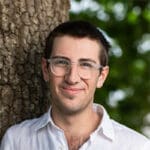Increasing health literacy for First Nations people

11 April 2025 at 9:00 am
Kelli Owen is the National Community Engagement Coordinator for the National Indigenous Kidney Transplantation Taskforce (NIKTT), a member of NIKTT Operations Committee, co-chairs the Community Engagement Working Group, Project officer with SA Health overseeing the Kanggawodli renal project with CNARTS (Central Northern Adelaide Renal & Transplantation Service) and is a CI and member of AKction (Aboriginal Kidney Care Improving Outcomes Now) with the University of Adelaide.
One of Kelli’s current projects is adapting health education resources and increasing health literacy to meet the needs of her people. In her current role, she yarns up with Aboriginal and Torres Strait Islander Communities across Australia, focusing on their kidney journeys, local issues and culturally appropriate solutions to increase equity and access to kidney transplantation. Kelli is familiar with Indigenous Governance methods, harnessing the voices of Indigenous people to raise awareness of equity issues and health system barriers to address. Kelli prides herself as an information sharer, helping to grow kidney care knowledge assist her people to make informed decisions. Kelli’s passion to share knowledge and to bridge knowledge systems of understanding to co-design innovative models of kidney care is a vital skill Kelli brings to the project to ensure its success.
Kelli is a mother of 5 and Mutha (nanna) of two boys. Kelli has lived with CKD knowing ESKD would eventuate. Her lived experience of the journey, from diagnosis, pre-dialysis, Peritoneal Dialysis, Haemodialysis, transplant workup and assessment, transplantation leading to her current situation of post-transplant care management makes her an invaluable contributor to the study. The challenges Kelli has experienced living in a regional town in South Australia has instilled her with an appreciation of the difficulties faced by rural and remote patients accessing essential health services. Issues pertaining to accessing treatment, transport, medications, allied services and feeling culturally safe in hospital settings are areas she passionately advocates for.
Describe your career trajectory and how you got to your current position?
In my former life I was a teacher in mainstream schools and art teacher in TAFE. Four years ago, I transition into health as a patient expert. This happened when I was approached to be a consumer on the NIKTT Taskforce. This Taskforce was set up to investigate why there was such a significant discrepancy between how many Aboriginal people on dialysis recieved transplants in comparison to non Indigenous people. During this time I applied for a position that was advertised about a national community engagement coordinator and was lucky enough to get it. At this time the role was travelling to meet with others to discuss their kidney and transplant journey.
Take us through a typical day of work for you.
There is no such thing as a typical day. I could be anything from sitting at home on Country working remotely, attending Zoom meetings, writing papers or flying to a remote area to meet with First Nations patients and their carers and then in turn meeting with the health workers who care for them or flying to Canberra to meet with politicians or going into SAHMRI and spending time with researchers and academics. The key thing is making sure that I am at the table. That the Aboriginal patient voice is at the table, that we are included.
What is the biggest challenge you’ve encountered in your career, and how did you overcome it?
Believing in myself – that deserved to be there, that I had something to contribute. The self-doubt was strong because health wasn’t my space. Ultimately I saw myself as an educator. That step of not only applying for the job but the process to where I felt like I belonged in this new role and new setting.
If you could go back in time, what piece of advice would you give yourself as you first embarked on your career?
- That you weren’t going to change the world in a day.
- That every person you meet will teach you something.
How do you unwind after work?
If I am Kaurna Country (Adelaide) I will go down to the beach with my daughter and grandson. If I am Ngarrindjeri County (Murray Bridge) I enjoy watering my plants and sitting out the back with my dog or taking him down the river for a walk. No matter where I am, drawing helps me wind down and connect back to myself and my ancestors.







